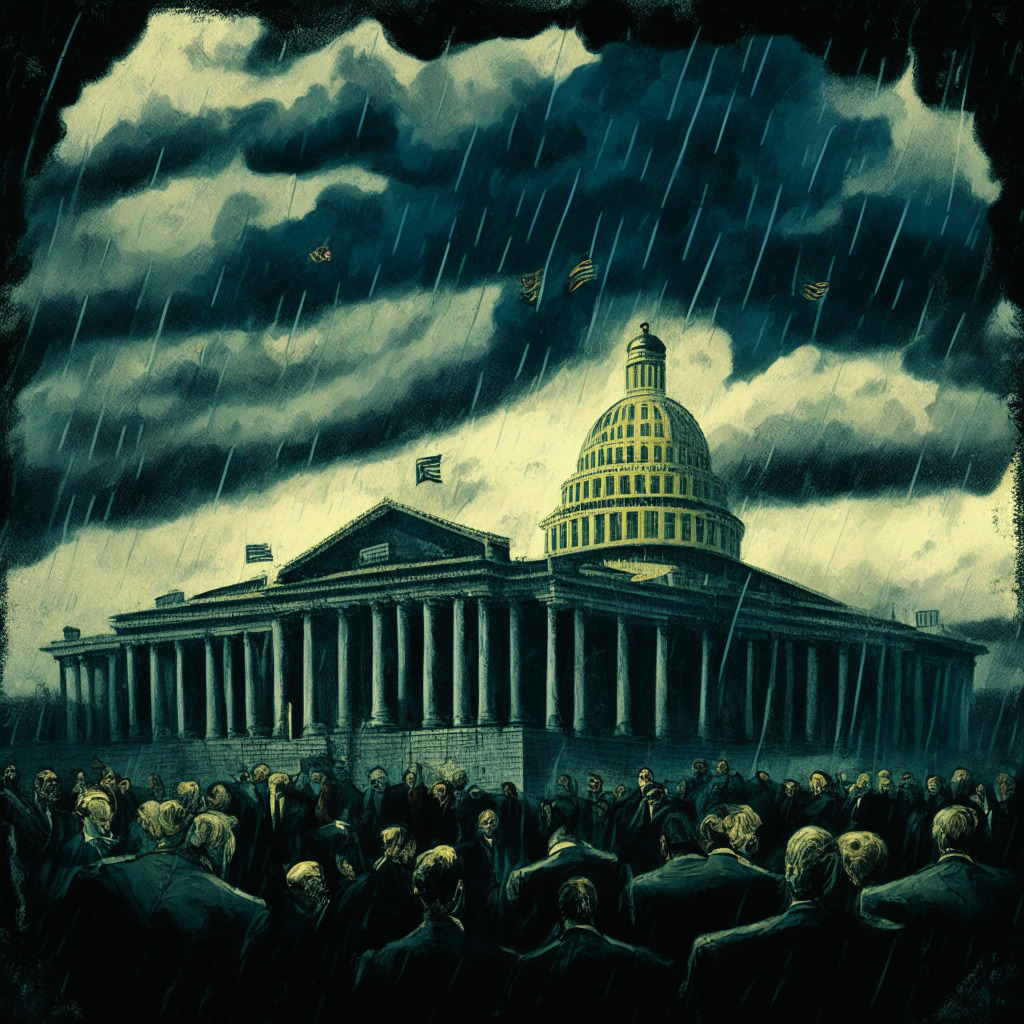In a whirl of criticism and concern, a selection of Republican lawmakers have made clear their apprehensions surrounding the Federal Reserve’s intensified oversight on crypto and stablecoin activities within banking establishments. These legislators, including celebrated figures such as House Financial Services Committee Chair Patrick T. McHenry, Rep. Bill Huizenga from Michigan, and Rep. French Hill from Arkansas, argue that the Federal Reserve’s actions might be obstructing the progression of a legislative proposal intended to regulate stablecoins.
Their primary misgiving finds its origin in the Federal Reserve’s release of a letter, coded as SR 23-8, outlining the conditions that state banks have to meet for establishing stablecoin-related activities. The regulator’s assertion that written managerial approval is required before initiating any stablecoin operations has cast a shadow of doubt over the viability of such ventures. Besides, the lawmakers assert that this increased scrutiny may repel financial institutions considering a leap into the digital asset ecosystem.
Further fueling these concerns is the Federal Reserve’s recently launched “Novel Activities Supervision Program,” known as SR 23-7. This is aimed at augmenting the regulatory gaze on banking organizations that are stepping into territories of crypto, distributed ledger technology, and technological collaborations with non-banking entities. However, despite the veneer of an allowable procedure, the lawmakers are sceptical about the genuine intent of the Federal Reserve, especially in relation to public, permissionless blockchains.
To dispel ambiguity, they reached out to the Federal Reserve, seeking clarity on several matters including future cooperation with state banking regulators, specifically regarding specific payment stablecoin activities that are sanctioned by state authorities. A deadline of September 29 has been earmarked for the Federal Reserve to respond to these queries. From Fed’s side, they acknowledged the receipt of the letter and expressed their commitment to respond.
This turbulence engenders from persistent strive within the House Financial Services Committee to devise a holistic regulatory infrastructure for stablecoins. Notwithstanding the challenges encountered during bipartisan discussions, the lawmakers persist in emphasizing a Congress-established regulatory structure’s critical role in assuring consumer interests and endowing market participants with certainty. With each day that passes, the interface between legislative proposals and regulatory initiatives will inevitably continue to mould the future of stablecoin regulations.
Source: Cryptonews




